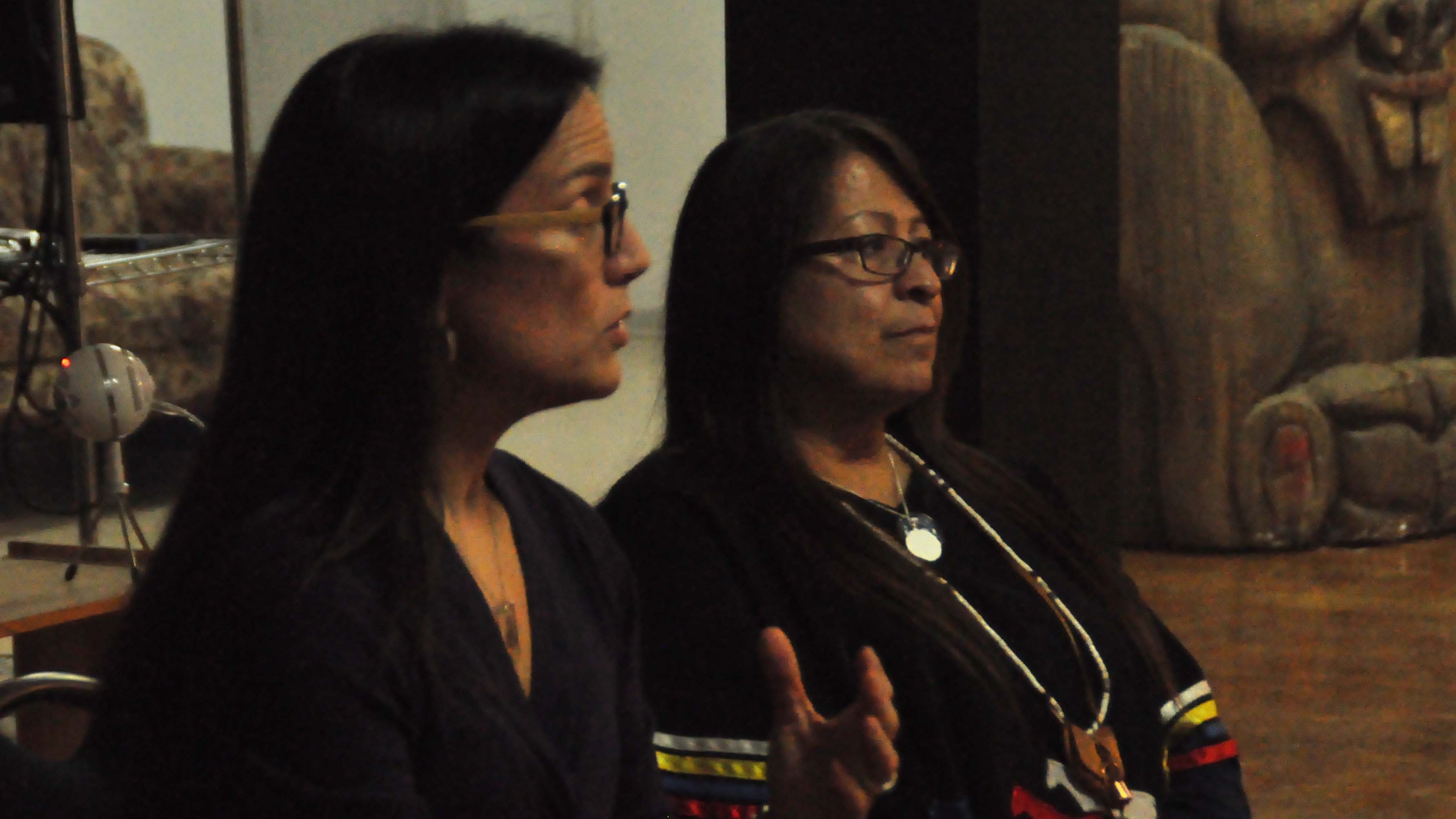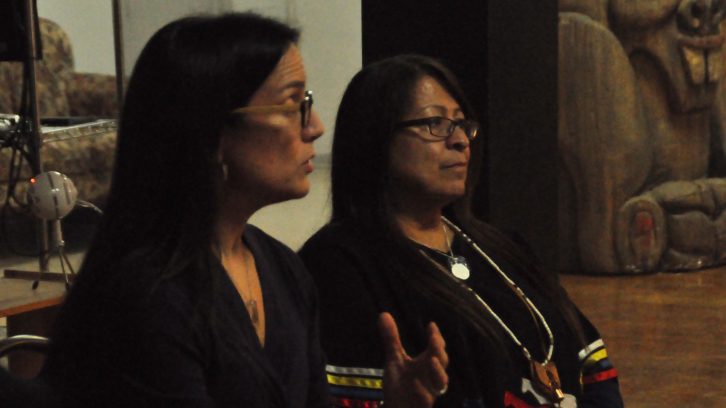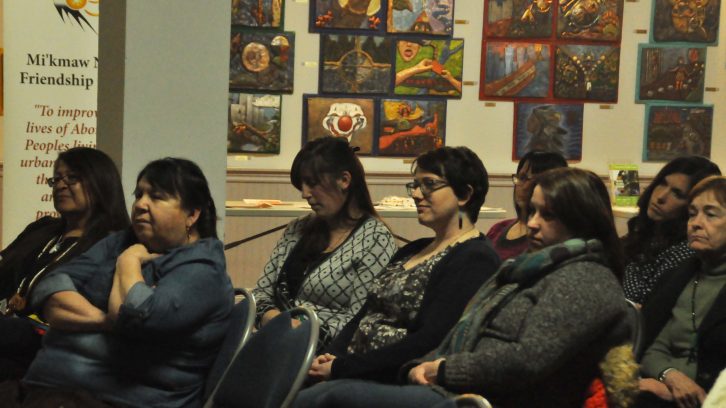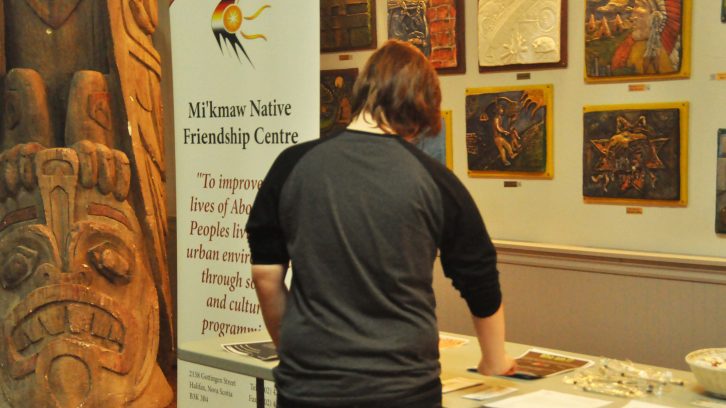Indigenous health
Indigenous health discussion at Mi’kmaw Native Friendship Centre
Dr. Nadine Caron says health status of Aboriginal people still needs to be improved

caption
Dr. Nadine Caron, left, talks about indigenous health.The health outcomes of Aboriginal people are disproportionately lower compared to those of non-Aboriginal Canadians, says Dr. Nadine Caron, the first female Indigenous surgeon in Canada from Prince George, B.C.
Caron spoke at the Mi’kmaw Native Friendship Centre in Halifax on Thursday about improving health care for Indigenous people. The Canadian Centre for Policy Alternatives and Adsum for Women & Children sponsored the event.
At first, Caron asked three questions during the discussion: Is it an adequate goal? Is it a correct goal? Is it an odd goal? She said there needs to be a reduction of health disparities among Indigenous people.
Caron who is Anishnawbe from Sagamok First Nation, graduated from the University of British Columbia’s medical school at the top of her class.

caption
Dr. Nadine Caron, left, talks about Indigenous health.She said there needs to be a reduction of health disparities among Indigenous people. “You don’t want to decrease the disparity, but you may want to make them at least equal,” said Caron.
“You have to start to realize how do you strategically bring the people to change these goals, targets and ideas,” she said.
First Nations people face serious health-related challenges, such as high rates of chronic and contagious diseases and a shorter life expectancy.

caption
People in Mi’kmaw Native Friendship Centre listen to Dr. Caron talk about Indigenous health.Caron used a bar graph titled Potential Years of Life Lost Standardized Rate, Status Indians and other Residents, B.C.,1995-2004 to demonstrate the health situation now.
“The issue is they don’t change,” said Caron about the bar graph. Although 10 years past, there is no big improvement on Indigenous people’s health in Canada.
“By definition if we aim to decrease the gap or decrease the disparities, we are aiming for a level or statistic that remains below that group of ‘others,'” said Caron.
Christine Saulnier, Nova Scotia director of the Canadian Centre for Policy Alternatives, said they have a lot of work to do in Canada to take care of First Nations people.
“When we think about health care in Canada, the people that have the worst health status are Indigenous people,” said Saulnier in an interview after Caron’s talk.

caption
A participant looks at a pamphlet about Indigenous health.She added that health is determined by much more than health care and the number one factor is income.
“The highest poverty rates in Canada are in our Indigenous communities,” said Saulnier.
Caron was in Halifax for one week as visiting professor in the medical citizenship program, held at Dalhousie University.
She did 20 different talks at places around Halifax including the Dal medical school, IWK Health Centre and the Nova Scotia Cancer Centre. The event at the Friendship Centre was the last of these talks.
